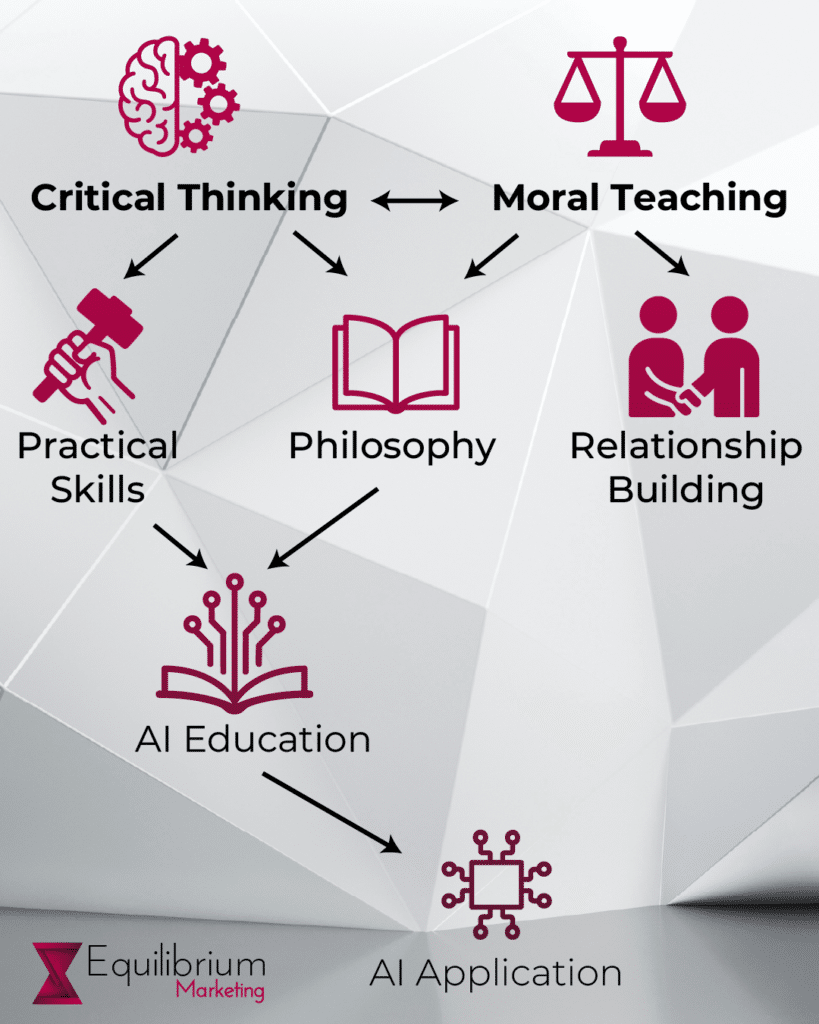The first step of any great plan is to create a strategy, and preparing the next generation for a world filled with thinking machines is no different. Our strategy needs to be comprehensive but attainable, focusing on human strengths while understanding what AI is and where it’s going.
Right now, AI is mostly siloed into specific categories. We have Generative AI, which is mostly large language models, image generation models, and video generation models. This category is both growing the fastest and poses the greatest threat to current jobs, as it includes “reasoning” models like GPT o3. This type of AI excels at taking previously generated human content and remixing it based on prompts. Additional forms of AI or machine learning include programs for detecting objects in live video, predicting next steps in patterns, optimization tools for manufacturing, and many more industry-specific tools, which we won’t touch on here. What you’ll notice is missing from this is true and novel creativity.
Humans excel at creativity, empathy, moral reasoning, interpersonal relationships, extrapolation from minimal context, and learning without prior experience. All of these areas either fall into the camp of “not yet” for AI abilities, and many fall into the category of “likely not ever.” For example, there is no well-developed theory of how an AI could ever learn true morality. Instead, AI will simply mimic whatever “moral” rules its makers give it. Currently, AIs require massive databases of information to train models, which limits their ability to handle fringe use cases. And lastly, AIs have absolutely no ability to build true interpersonal relationships, although they can mimic human activity in this area.

In a world filled with thinking machines, where we have to play to our strengths, we must both accept and understand human exceptionalism in the following hierarchy: Our critical thinking skills are matched only by our moral understanding. Our practical skills in our professions stem from our critical thinking skills. Our understanding of truth through philosophy is the marriage of both our moral reasoning and critical thinking skills. And our moral understanding governs all interpersonal relationships. From all this, we can finally build the foundation upon which we can use AI tools. AI can only augment our capabilities once we have a firm foundation to build upon, with a clear directive.
In the end, the most important areas to focus on when educating the next generation are: rational thought, moral truth, and philosophy.
